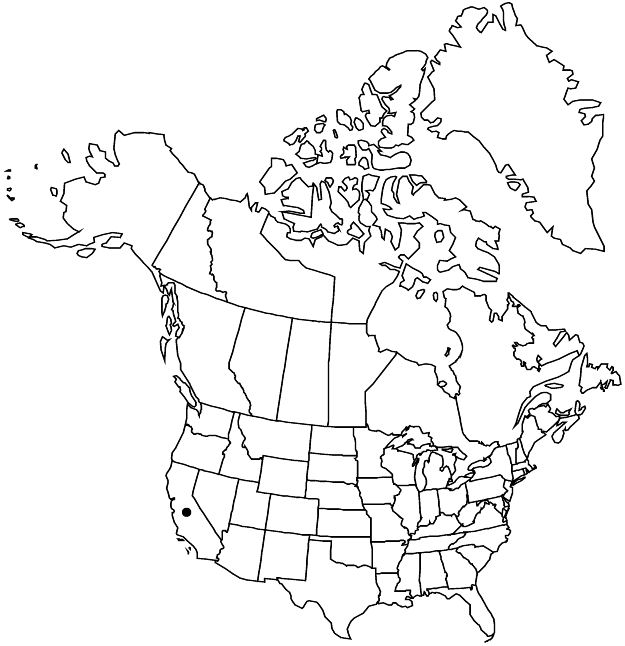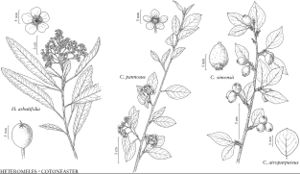Difference between revisions of "Heteromeles arbutifolia"
Fam. Nat. Syn. Monogr. 3: 105. 1847.
imported>Volume Importer |
imported>Volume Importer |
||
| Line 77: | Line 77: | ||
|publication year=1847 | |publication year=1847 | ||
|special status=Illustrated | |special status=Illustrated | ||
| − | |source xml=https:// | + | |source xml=https://bitbucket.org/aafc-mbb/fna-data-curation/src/2e0870ddd59836b60bcf96646a41e87ea5a5943a/coarse_grained_fna_xml/V9/V9_755.xml |
|subfamily=Rosaceae subfam. Amygdaloideae | |subfamily=Rosaceae subfam. Amygdaloideae | ||
|tribe=Rosaceae tribe Gillenieae | |tribe=Rosaceae tribe Gillenieae | ||
Latest revision as of 22:59, 5 November 2020
Leaves: petiole 1–2 cm, tomentose; blade margins cartilaginous, veins 10–20 per side. Inflorescences: bracts persistent, 1–3; appendages persistent, hard; bracteoles subulate, 4–10 mm, chartaceous, margins ± revolute, teeth hard, gland-tipped, abaxial surfaces hairy. Flowers: sepals 1–2 mm. Pyrenes brown, smooth.
Phenology: Flowers Apr–Aug.
Habitat: Chaparral, oak woodlands, mixed-evergreen forests
Elevation: 0–1300 m
Distribution

Calif., Mexico (Baja California).
Discussion
Heteromeles arbutifolia is widely distributed in the Coast Ranges north to Humboldt County and in a more scattered manner in the Sierra Nevada to Shasta County. Plants are used for Christmas decoration in the flora area and are sometimes cultivated for ornament where the species prospers.
Two varieties have been named, var. cerina (= Photinia arbutifolia var. cerina), which represents yellow-fruited forms, and var. macrocarpa (= P. arbutifolia var. macrocarpa), with more floriferous inflorescences and larger fruits (8–10 mm). The first is a sporadic variant worthy only of forma status; the variety named by Munz is more substantial, seems usually to have shorter and relatively broader leaves with barely toothed, revolute margins, and is said to be most common on the Channel Islands of San Clemente and Santa Catalina. This variety seems to intergrade with var. arbutifolia, which represents the bulk of the species.
Selected References
None.
